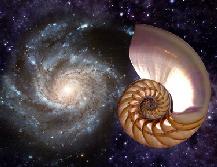
Pantheism symbols
Pantheism is the belief that everything composes an all-encompassing, immanent God, or that the Universe (or Nature) is identical with divinity. Pantheists thus do not believe in a personal god or a anthropomorphic god.
The Universal Pantheist Society and the World Pantheist Movement (WPM) are two organizations of people associated with pantheism.
The Copernican principle, named after Nicolaus Copernicus, states that the Earth is not the center of the universe. Copernicus was a Renaissance astronomer and the first person to formulate a comprehensive heliocentric cosmology. The Anthropic Principle was first raised by Brandon Carter in 1973 in reaction to the Copernican principle. Carter stated “Although our situation is not necessarily central, it is inevitably privileged to some extent”. The anthropic principle has given rise to some confusion and controversy, partly because the phrase has been applied to several distinct ideas.
The anthropic principle is related to the fundamental parameters, that is the dimensionless physical constants and the initial conditions for the Big Bang. Connections between physical constants that seem to be necessary for the existence of life in the universe are called the anthropic coincidences. Many examples of claimed anthropic coincidences can be found in the literature. The constants of nature seem to be extraordinarily fine-tuned for the production of life. Opponents to this theory argue that the universe is less fine-tuned than often claimed or that there is not one universe, but a whole infinite ensemble of universes with all possible fundamental parameters, the multiverse.
